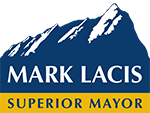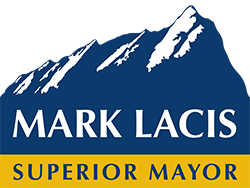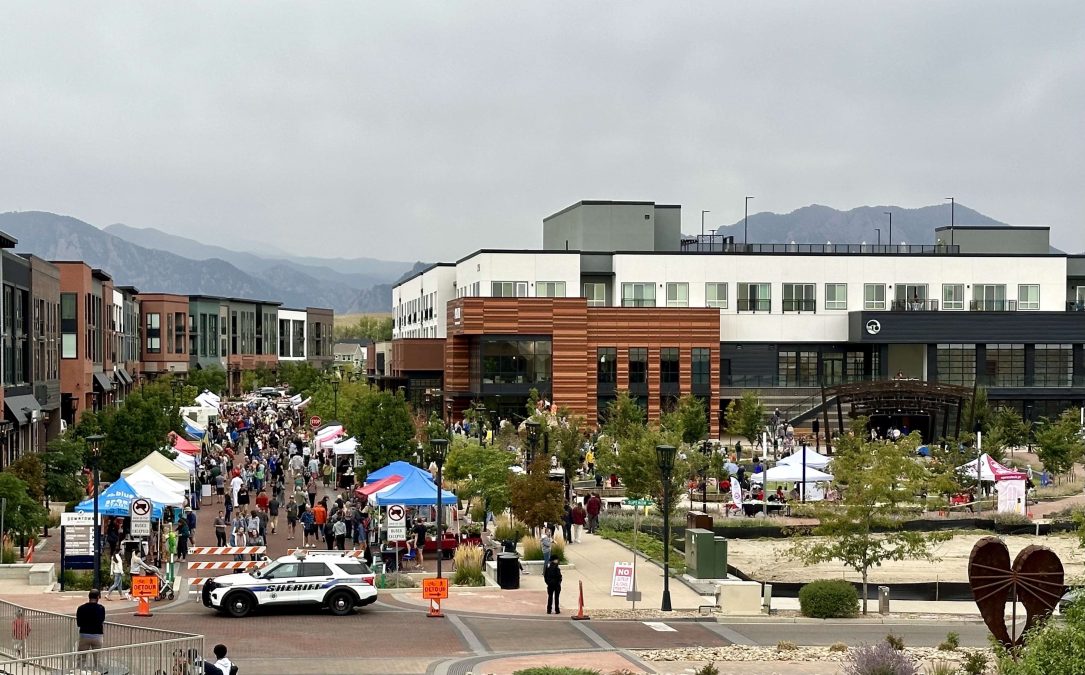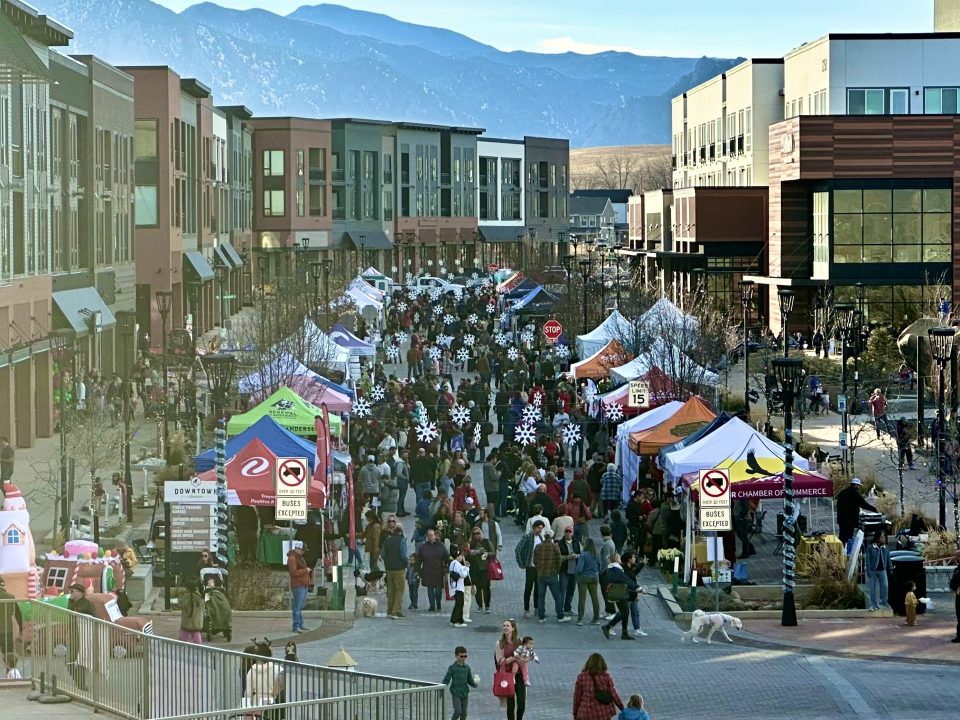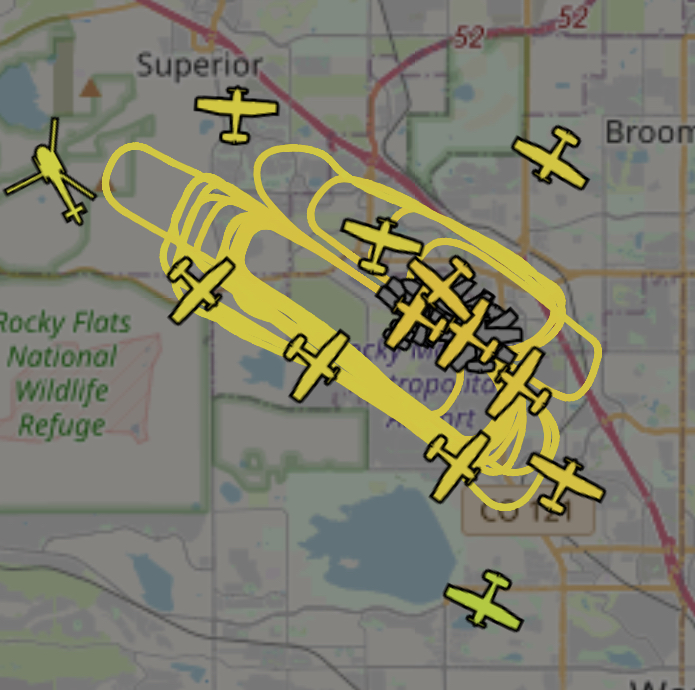October 2024

New Business Roundup
September 3, 2024
Superior’s New Waste Contract
March 13, 2025Hey Superior – hope you are all doing well. There’s a lot going on these days as we near Election Day and I wanted to give you an update on some hot topics going on around Town, including: Superior’s sales tax ballot measure, an update on Rock Creek Parkway construction, the Home Rule Charter Special Election, RMMA, Downtown Superior civic space, Rock Creek fences, and more…
Trustee Election
November’s ballot will have an election for Town Trustee. Here are the candidates who are appearing on the ballot.
– Heather Cracraft
– Mike Foster
– Sandie Hammerly
– Gregory Horowitz
– George A. Kupfner
– Bob McCool (withdrawn) **
– Jason Serbu
** Candidate Bob McCool has withdrawn from the town Trustee race. His name will still appear on the ballot, but please do not vote for him. Votes for him will not be counted or reported, but a vote for him plus three others will cause an overvote, which means none of your votes can be counted. Vote for only up to three candidates. If you accidentally vote for him, cross his name off and vote for three valid candidates.
For more information about the candidates, please watch the League of Women Voters/Superior Chamber of Commerce candidate forum.
Sales Tax
When you receive your ballot this month, I’m urging you to vote YES in favor of Superior Ballot Issue 3B — a proposed .315% sales tax to fund investments in our pools, playgrounds, and roads, so they will serve us well into the future. Here’s why I support this necessary ballot measure.
The Marshall Fire blew a hole in our Town’s finances and we’re still feeling the effects today. The Fire resulted in ~$10M in unbudgeted-for expenses for the Town and most of those expenses haven’t been covered by insurance or reimbursed by FEMA. The Marshall Fire also substantially decreased our revenues — we lost nearly 400 homes/businesses (15% of our property tax base) and large retailers like Target which provide a substantial percentage of our sales tax collections were closed for 9 months.
In light of these fiscal challenges, the Town Board tightened its belt and delayed various capital improvement projects to save money where it could. But we were also just coming out of the pandemic, with inflation skyrocketing and interest rates rising. The costs of everything were shooting up — including the costs of road projects and other infrastructure projects.
Despite these economic challenges, we have to face the reality of our aging infrastructure in Superior: pools, playgrounds, and roads all need work and are around 30 years old. While the Town Board over the past few years has made substantial investments in fixing our roads (88th Street, Coalton, McCaslin, part of Indiana, and part of Rock Creek Parkway — have all been rebuilt), the amount of work that needs to be done well exceeds what we are able to allocate in our annual budgets. For example, we typically invest $3M-$5M a year in our Capital Improvement Project budget… but have $35M worth of projects identified right now that need attention. Rock Creek Parkway itself is a $10M-$12M project (just from McCaslin to 88th). The North Pool has a hole in it and preliminary estimates to fix North Pool are $3M-$5M on the low end. The South Pool also needs work and is also reaching the end of its useful life. Pumps, heaters, and other mechanical equipment are failing and if we don’t do something soon, one or both pools may have to stay closed for the summer because they won’t be safe to operate.
This isn’t coming as a surprise and isn’t the result of poor planning — to the contrary, we previously took steps to address these funding shortfalls. We asked voters in 2021 for a transportation sales tax increase, but that ballot measure failed. But the needs remain… and in fact, they continue to grow.
So why a sales tax? Sales Tax is paid 70% by people other than Superior residents — but those people also use our roads, and we think it’s actually fairer to our residents to ask that non-residents to share in the burden of paying the sales tax — rather than paying for it out of property taxes, which would be paid entirely by Superior residents.
The proposed tax is .315% (31 cents on a $100 purchase) and would expire in 2050. If passed, the sales tax should allow us to bond for $15 million (maybe more) — depending on where interest rates are in mid-2025. And, this sales tax measure brings us in line with our neighbors in Louisville to a total sales tax rate of 8.96%, which is still below Boulder/Lafayette.
We’ve already been hard at work to make sure that we can hit the ground running, in the event that this ballot measure passes. We’ve been visiting lots of pools in other towns throughout the front range to get ideas and draw inspiration. We’re working to get a consultant lined up and should have plans for a redesigned North Pool ready this winter, so we can start construction at the end of next summer. Similarly, if this ballot measure passes, we plan to extend the Rock Creek Parkway work so we won’t just be doing the McCaslin/RCP intersection in 2025 (which is the only part of RCP that is currently in the budget for 2025 without this ballot measure), but we’ll also be able reconstruct the roadway from Indiana to 88th Street too! So, if this passes, voters should start seeing the investments back into our community as early as next year.
Please vote YES on Town of Superior Ballot Issue 3B — an investment in our future.
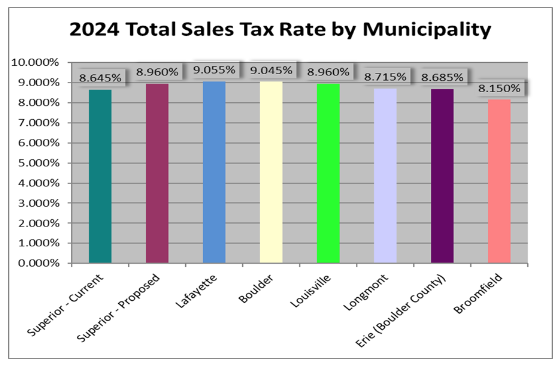
Rock Creek Parkway
Rock Creek Parkway was our major roadway project in 2024 and it remains our major road project priority for 2025 and into the future. It’s a huge project that is estimated to cost more than $10M. Because it’s such an important road for our community, and a large expense, we wanted to make sure that we weren’t just going to repave it if there were concerns with the design of the roadway. We had repeatedly heard concerns with speeding, pedestrian crossings, and bike safety and consequently, the Town Board wanted to see if there were ways to improve the roadway’s design while we were reconstructing it.
Our Public Works team got to work, engaged a consultant, and did a ton of community outreach — RCP Repurposing Study. Their recommendation was to take the road from 4 lanes down to 2, create buffered bike lanes, and shorten the width of roadway crossings where pedestrians (especially children) would be exposed to traffic. However, the public reacted negatively to the idea of narrowing the road to 2 lanes so as a compromise, we went with a design that preserved 4 narrower lanes, but also incorporated the pedestrian/bike lane improvements recommended by the traffic engineers.
The work performed this summer — reconstructing RPC from McCaslin down to Indiana was done really well. The roadway is smooth and in great shape and the areas where we removed turn lanes and installed permanent curb & gutter (which narrowed the crossings by Pitkin) are working well and we’re hearing no complaints. Where we are hearing complaints, however, is for the areas of the road that haven’t yet been reconstructed, and which were only re-striped and had bollards installed to eliminate turn lanes.
I understand why people are upset. Roadway changes can surprise people and it’s hard to get used to something different when our driving behaviors have become habits. But the rationale behind the decision to restripe the entire road was two-fold: (1) get the Town used to driving the new pattern and (2) not surprise drivers with 2 different patterns in a road — with the reconstructed road having a different striping configuration than the non-reconstructed road.
For those sections of RCP that haven’t yet been reconstructed — we could change the striping and remove the bollards if we had to — and we could certainly do so more easily than if we had to remove a permanent curb & gutter. We can also make improvements and reconfigure the striping & bollard placement. Maybe after driving it for a few weeks, we will learn to live with them. Maybe, we can change their location to a slightly different configuration, that’s a possibility too. Then again, others may hate the changes altogether. In any event, we will continue to look at these sections of RCP and evaluate the safest strategy for them and make improvements as necessary.
As a Town Board, we do our best to listen to all of our residents’ differing opinions, but we also consider the recommendations from our town staff and the traffic engineers — experts who do this type of work professionally — so we can make an imperfect road a bit safer, better designed, and better constructed to serve our community well into the future.
Home Rule Charter Election
The Town Board learned on the evening of Monday, September 23, that the Home Rule Charter question had not been submitted to the Boulder County Clerk & Recorder’s Office in time to make it on the November ballot. The following 36 hours were spent trying to correct this mistake and get the question on the ballot. However, it became clear that we could not have ballots re-printed with the Home Rule Charter question included, because Overseas Voters ballots had already been printed and mailed.
Consequently, at a Special Meeting on Tuesday, October 1, the Superior Town Board unanimously approved sending the Home Rule Charter ballot question to the voters in a mail ballot Special Election to be held on December 10, 2024. The expected cost of holding the Special Election is estimated to be $59,000. We are analyzing where we can adjust our 2024 budget to fund this special election.
Why a Special Election? By statute, the Town is required to submit the home rule charter question to the voters within 185 days after submission to the Town Board. There are other statutory timelines and requirements as well and multiple home rule commission members are also running in this year’s election for the Town Board. So, delaying a vote until next year, was not viable.
The Board remains committed to conducting a full investigation to determine how this mistake occurred, determining who was in a position to catch the mistake before ballots were printed, and what additional controls can be implemented in the future. The only way to prevent something like this from happening again is to fully understand the process and where we failed in that process. Yes, people make mistakes, but we also have to hold ourselves accountable.
For more information on the Home Rule Charter Election, please visit www.superiorhomerule.com or attend one of the many information sessions scheduled at the Superior Community Center on October 15 (5pm); October 21 (7pm); November 14 (5pm); and December 2 (7pm).
RMMA
After years of trying to work with Jeffco and RMMA Airport Director to address growing noise and pollution emanating from the airport (hiring a consultant, forming a Community Noise Roundtable — and eventually dissolving that CNR after bad faith of Jeffco and its former Airport Director Anslow…), the Town engaged aviation counsel and filed a lawsuit (joined by Boulder County) in state court in March 2024 to combat the nuisance caused by piston engine aircraft flying touch-and-goes over Superior.
Jeffco & RMMA filed a Notice of Removal of the case to Federal Court and thereafter, a Motion to Dismiss the case. Jeffco & RMMA argued that federal law preempted Superior’s state law nuisance claim and because of that preemption, that we should not be able assert a nuisance claim at all. The parties briefed the motions and have been waiting for months for a decision.
In late September, we received the Federal Magistrate’s Recommendation to remand the case back down to state court — finding that there was no basis for Jeffco & RMMA to remove the case to Federal Court and that the Federal Court did not have jurisdiction over the case.
While it is unfortunate that Jeffco & RMMA chose to go this route and delay resolution of the case on the merits, we are happy to see the Federal Court agree with us on this issue and are looking forward to having the opportunity to litigate this case in State Court, where it belongs. Over the coming months, we’ll engage in discovery and prepare for a trial on the merits and push for the relief that we’ve been seeking all along — an abatement of the nuisance caused by piston engine aircraft performing touch-and-goes over Superior.
Fences in Rock Creek
Back in 2003, metro districts that were set up by the developer of Rock Creek to build and fund certain public improvements in Rock Creek (roads, sewers, pools, playgrounds, parks, and open space areas) were dissolved and taken over by the Town. As part of that process, a landscape fee was created to pay for maintenance costs associated with some of those public improvements.
For things like roads, sewers, pools, parks, playgrounds, and open space areas — where the Town OWNS those assets, it’s pretty straightforward that the town needs to continue paying for and maintaining them. However, the Town does not own the fences in Rock Creek — we, the homeowners, do. I live in Rock Creek and have a fence that abuts a path and park, and it’s my private property.
It’s important to note, that the Town does not require those of us living in Rock Creek to have fences at all. The Town also does not require us to paint those fences. And the Town does not require us to paint those fences any particular color.
The Rock Creek HOA, on the other hand, through its HOA Covenants — does require us to have fences, maintain those fences, and paint them “Cabot’s Dune Gray #0167.” Just like the HOA periodically “reminds us” to paint our houses, it also has jurisdiction over reminding us to paint and maintain our fences. For years, the HOA hasn’t had to remind us to paint our fences — but that’s not because it lacks the power or authority to do so, it’s just because the Town had been assuming that obligation instead of the homeowners.
I can understand why a lot of people like that arrangement — it’s easier to have the Town contract with a painting contractor and leverage economies of scale and access some of the harder to access fence areas — than it is for homeowners to do so on their own. But it’s unusual for a municipality like Superior to maintain private fences belonging to residents — particularly for those residents that live in an HOA. And in my opinion there is a better way to ensure that Rock Creek’s fences are maintained going on into the future.
Through its powers as an HOA — the Rock Creek HOA could levy an assessment on homeowners to pay the costs of maintaining and painting the fences. That’s how common area fences are typically maintained by HOAs without getting the local municipalities involved at all. In my opinion, that’s the way these fences should be maintained going forward. Also, we’ve asked the HOA to sit down and meet with the Town Board, but to date, the HOA is refusing our invitation, which is unfortunate. I would think that by sitting at the same table, we could reach an agreement that would serve our community well into the future. I’m hopeful that they’ll change their minds and meet.
Nevertheless, the Town continues to look into this matter to see if we can find a workable solution. The landscape fee as it currently stands does not generate sufficient funds to cover the cost of painting and maintaining the Rock Creek fences. If we were to reinstitute the painting and maintenance of fences, we need to increase the landscape fee.
Downtown Civic Space
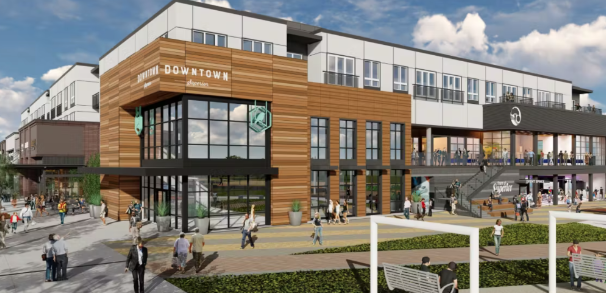
Back in 2013/2014 the Town Board approved initial plans for Downtown Superior which contemplated $10M worth of contributions by the developer towards certain public improvements, like parks & civic space. The developer has now constructed the civic space, turned it over to the Town to own and operate, and now the Town will be completing the interior finishes for the civic space.
The Downtown Superior plans predated the Town owning the Superior Community Center — which came about as a result of settling a lawsuit with the owner of the building previously leased to Land Rover from an agreement from the late 1990s. I won’t bore you with the details of that dispute, but that’s how we came to own that building. Despite the manner in which we came to own the Superior Community Center, the SCC has undoubtedly been a great asset to Town — that became clear in how it was used to help mobilize resources and respond to the Marshall Fire. It’s also a meeting and gathering place. And it’s hard to imagine what life was like in Superior before we had the SCC.
Meeting space at the SCC is a hot commodity — after school hours, our rooms are booked solid with all sorts of group meetings: town advisory committees, Cub Scouts and Girl Scouts troops, birthday parties, classes, choir practices, ukulele jam, etc… and with regards to the DTS civic space, more meeting space is needed and will definitely get used.
But is it a “smart” financial decision to have another civic space? Well…, consider the alternatives. While we have to pay to finish the interior of the DTS civic space, the developer constructed and is giving that space to us for free. Is it smart to walk away from getting free space? I don’t think so. I’d much rather take the space that was agreed to be built for the town in 2013/2014 and use that asset as our town grows, instead of scrambling to find more space to serve the needs of a growing community, which would inevitably cost the town substantially more. I also believe that the Downtown civic space will serve as an anchor for the Downtown Superior development. We’ve already seen its potential with the Plaza Palooza Fall Festival, and it will be exciting to see how we are able to activate Main Street in Downtown Superior and turn it into a central hub for our community to gather and celebrate, well into the future.
State of Superior – October 17
Mark your calendars — the State of Superior presentation will be held at the Superior Community Center at 6pm. This event will include food and drink beginning at 6 p.m. and the program will begin at 6:30 p.m. and is expected to last about 2 hours with a question and answer session included in that time. The first 50 attendees will receive gift cards for a treat at a local business!
Can’t attend in person? The event will be broadcast on YouTube: youtube.com/live/wV7bY86-1tE
Let’s Connect
First Fridays is a great opportunity to meet informally with Town Board members. The next one is scheduled for November 1 at the Superior Community Center from 7:45 am to 9:30 am. If that doesn’t work, you can always send me an email to markl@superiorcolorado.gov or the full board at townboard@superiorcolorado.gov.
